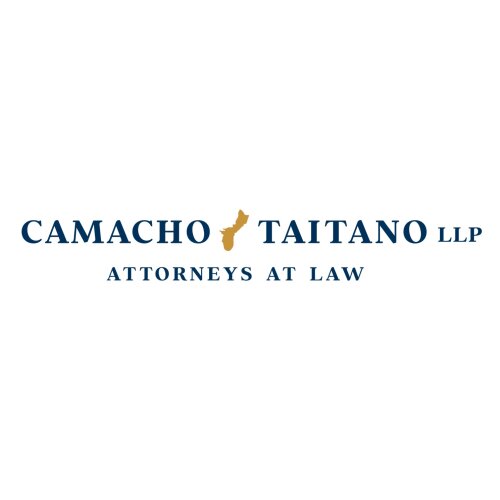Best Faith-Based Law Lawyers in Hagåtña
Share your needs with us, get contacted by law firms.
Free. Takes 2 min.
List of the best lawyers in Hagåtña, Guam
About Faith-Based Law in Hagåtña, Guam
Faith-Based Law in Hagåtña, Guam, refers to legal matters that involve religious beliefs, practices, and institutions. As Guam is home to a diverse population with varied religious practices, Faith-Based Law often intersects with family law, employment law, and civil rights. Legal issues may involve balancing religious freedoms with other constitutional rights, making this a complex and nuanced field.
Why You May Need a Lawyer
Individuals or organizations may seek legal advice in Faith-Based Law for several reasons. Common situations include disputes over religious property, employment conflicts involving religious institutions, issues of freedom of religious expression in public spaces, and family law cases where religious beliefs impact decisions on marriage, divorce, or child custody. Additionally, religious organizations may require guidance on compliance with local laws and regulatory requirements that affect their operations.
Local Laws Overview
Guam's legal framework respects both the U.S. Constitution and local customs, which can involve faith-based considerations. Key aspects relevant to Faith-Based Law in Hagåtña include the right to freedom of religion, anti-discrimination laws applicable to religious organizations, and statutory exemptions for religious practices from certain general legal requirements. These laws aim to balance the protection of religious practices with the rights of individuals and organizations that may be affected by them.
Frequently Asked Questions
What is Faith-Based Law and how does it affect me in Guam?
Faith-Based Law encompasses legal issues that arise due to religious beliefs or practices. In Guam, this means dealing with matters where religious customs intersect with legal rights and responsibilities, affecting both individuals and institutions.
Do all legal conflicts in religion require a lawyer specialized in Faith-Based Law?
Not all religious-related issues need specialized legal advice. However, conflicts involving constitutional rights, employment in religious institutions, or complex family matters with religious elements often benefit from lawyers experienced in Faith-Based Law.
How do Guam's local laws interact with federal re ligious rights?
Guam, as a U.S. territory, follows federal laws, including those protecting religious freedom. Local laws are designed to work alongside these, offering additional context-sensitive protections and regulations.
Can a religious organization restrict hiring to members of its faith?
Faith-based organizations in Guam often have the legal right to prefer hiring individuals who share their religious beliefs, provided this is articulated as part of their mission and operations, consistent with legal exemptions.
Are there laws protecting religious expression in public schools?
Yes, public schools in Guam must respect the religious rights of students, allowing expressions of faith as long as they do not disrupt educational activities or infringe on the rights of others.
What should I do if my religious freedom is being infringed upon?
If you believe your religious freedoms are being violated, consulting with a lawyer familiar with Faith-Based Law can help you understand your rights and explore potential legal actions.
How are religious property disputes resolved in Guam?
Disputes over religious property in Guam are generally resolved through civil courts, often considering both the legal framework and the religious context, guided by legal precedents and statutory interpretations.
How does Faith-Based Law affect marriage and divorce proceedings?
While marriage and divorce are civil matters, religious beliefs may influence decisions on prenuptial agreements, child custody, and community property division, requiring critical legal intervention to balance religious considerations with legal obligations.
Are there any local cases or precedents that affect Faith-Based Law in Guam?
Several local cases have influenced Faith-Based Law, particularly those balancing religious expression with anti-discrimination policies. Understanding these precedents can provide insight into how similar cases might be treated.
How can I ensure my religious organization complies with local laws?
To ensure compliance, it's essential to consult with legal professionals who can provide guidance on registration, tax obligations, employment law, and adherence to anti-discrimination regulations that may apply specifically to religious entities.
Additional Resources
For further assistance, you may wish to contact the Guam Office of the Attorney General for information on local laws, or seek support from religious legal consultation groups familiar with Faith-Based Law. Organizations such as the Interfaith Alliance of Guam may also offer educational resources and advocacy support.
Next Steps
If you require legal advice in Faith-Based Law, consider consulting with a qualified attorney who has experience in religious legal matters. It can be helpful to gather all relevant documentation and a clear summary of your issue before your consultation. Additionally, attending local seminars or workshops on Faith-Based Law might provide further insights and aid in understanding your specific legal situation.
Lawzana helps you find the best lawyers and law firms in Hagåtña through a curated and pre-screened list of qualified legal professionals. Our platform offers rankings and detailed profiles of attorneys and law firms, allowing you to compare based on practice areas, including Faith-Based Law, experience, and client feedback.
Each profile includes a description of the firm's areas of practice, client reviews, team members and partners, year of establishment, spoken languages, office locations, contact information, social media presence, and any published articles or resources. Most firms on our platform speak English and are experienced in both local and international legal matters.
Get a quote from top-rated law firms in Hagåtña, Guam — quickly, securely, and without unnecessary hassle.
Disclaimer:
The information provided on this page is for general informational purposes only and does not constitute legal advice. While we strive to ensure the accuracy and relevance of the content, legal information may change over time, and interpretations of the law can vary. You should always consult with a qualified legal professional for advice specific to your situation.
We disclaim all liability for actions taken or not taken based on the content of this page. If you believe any information is incorrect or outdated, please contact us, and we will review and update it where appropriate.









